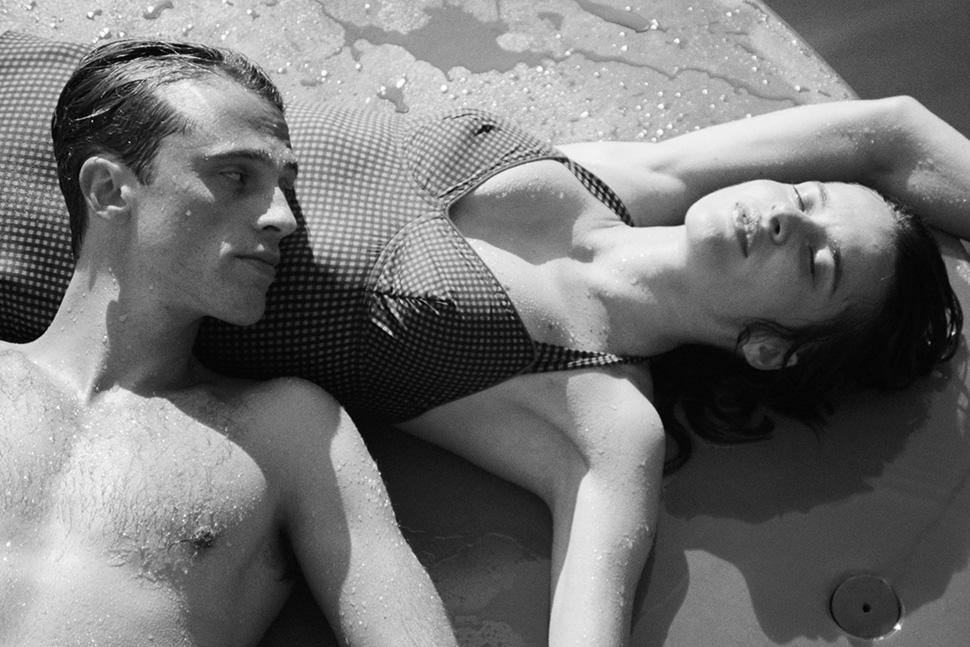
Terrible things happen to people every day: Wars rage, good people are betrayed, nefarious governments conspire, and innocents are left to make sense of it all. When “My Father and Qaddafi” filmmaker Jihan K asks her uncle if they will ever know the true details of what happened to her father, the Libyan politician Mansur Rashid Kikhia, he seems bemused, seeing his beloved cousin’s death as just one droplet in a sea of tragedy. He tells the filmmaker “The country itself is collapsing,” and “young people die like you drink water.”
But for the filmmaker and her family, answers are needed. It’s the not knowing that is so painful. Who kidnapped her father? Under what circumstances? Was he imprisoned, or murdered, or both, and will they ever have a graveside to visit?
Jihan’s astonishing documentary is a testament to an astonishing man; it’s the work of a talented young filmmaker who picked up a camera at an early age in order to speak her missing father back into existence. “My Father and Qaddafi” charts the story of Libya’s past century with a clear-eyed view on one of its most public tragedies: The 1993 abduction of former Libyan ambassador turned opposition leader Mansur Rashid Kikhia from a human rights conference at a Cairo hotel, knowledge of and responsibility for which was denied by both the Egyptian and Libyan authorities. The ambassador left behind his Syrian-American wife Baha Al Omary, and the four children they were raising together, the youngest of whom has made this extraordinary film to contend with what happened to the father she has no memories of — and to the beloved country they shared.
There can be little to feel optimistic about as the film, in its central acts, kinetically charts the history of Libya and its patterns of resistance: half-remembered genocides, colonization, and a post–Arab Spring civil war that has seen much of the country lie in ruins. The fates of so many were decided on the 1969 day when a dashing and sadly underestimated 25-year-old Colonel Qaddafi seized power from the monarchy in a matter of hours and promised a new golden era, inspired by Egypt’s President Nasser.
The history of Libya doesn’t repeat itself, but it often rhymes, each generation nostalgic for the good old days that preceded them, papering over its brutality. In the present, even the surviving former opposition leaders long for a return to the Qaddafi regime, saying, “Now it’s even worse than with Qaddafi. Then we had one dictator, now we have 1000.” But even with his tyranny in recent memory, it’s still remarkable to see what an undignified end this once pompous and preening man would eventually face: killed by the people he oppressed, dragged through the streets with his bloodied corpse, then stored in a restaurant refrigerator where people would queue and even bring their children to catch a glance and revel in his long-overdue demise.
Jihan’s mother, whose insightfulness and dignity cannot be overstated, offers a measured response: that despite what she and her family have been through, she cannot “celebrate death.” She is the film’s most compelling and enchanting voice, and while it’s hard to comprehend just how her handsome husband — she would appreciate me pointing out, as she frequently does, just how handsome he is — could risk leaving her a single mother, she insists that his kidnapping transformed her from a normal woman and into a mighty “sword.” Though it is deeply tragic that this family lost a parent who rose to prominence in his fight for the common man, the one who remained behind is just as formidable.
More than just a portrait of Kikhia’s fascinating life, his daughter’s film offers an exquisite depiction of both yearning and the complexity of the grieving process. In each frame, Jihan longs to not just know what happened to her father, but also to know her father at all. Her loving older brother can recall the feelings he had when his father was present, but for her, in place of any memories, she has only photographs, newspaper clippings, and the odd bit of footage (in which he’s always impeccably turned out, and often seen reveling in the joys of fatherhood).
Jihan peers closer at these images, now sensing in some of them that her father seems preoccupied, as if already aware of the tragic fate that would befall him. She also contends with the knowledge that he knew and accepted the risks of his trip to Cairo, and how it could potentially leave her to grow up fatherless. But as her mother puts it, “Death is one, but the ways you die are many,” and her father stood up for the lives of Libyans despite the horrors that he was aware could lie ahead.
For all of its formal elegance, “My Father and Qaddafi” is also thrilling. Many answers to questions that at first seem futile to pursue are eventually solved and their answers punctuate the film’s devastating final act, which hits like a punch in the heart, as the solutions are utterly grotesque, begging the question of whether perhaps not knowing would have been a kindness to these already beleaguered people. But there’s a balance here, and the film’s grief is mercifully punctuated with joy: home video footage of piano practice, of Jihan’s mother radiant as she recalls a courtship with a (handsome) powerful man who believed in her artistic talent, and of a Thanksgiving where Jihan’s older siblings joke about being thankful for America’s colonial spirit.
In total, Jihan’s film is both an act of remembrance and resistance writ large. In a world where decency can feel futile, “My Father and Qaddafi” presents a story that compels you to be decent anyway. We watch a man refusing to accept that his countrymen live their lives in oppression, a woman refusing to let her husband’s sacrifice be brushed aside by nefarious forces, and a young filmmaker refusing to let her father’s narrative be controlled by those who didn’t love him. It’s a truly inspiring work and a credit to Jihan that even with so personal a subject she is able to convey both the micro and macro stakes. Terrible things happen in this film, just as terrible things continue to happen in the places that Mansur Rashid Kikhia held so dear, but we must, as he did, somehow find the strength to resist.
Grade: A-
“My Father and Qaddafi” premiered at the 2025 Venice Film Festival. It is seeking U.S. distribution.
Want to stay up to date on IndieWire’s film reviews and critical thoughts? Subscribe here to our newly launched newsletter, In Review by David Ehrlich, in which our Chief Film Critic and Head Reviews Editor rounds up the best new reviews and streaming picks along with some exclusive musings — all only available to subscribers.



